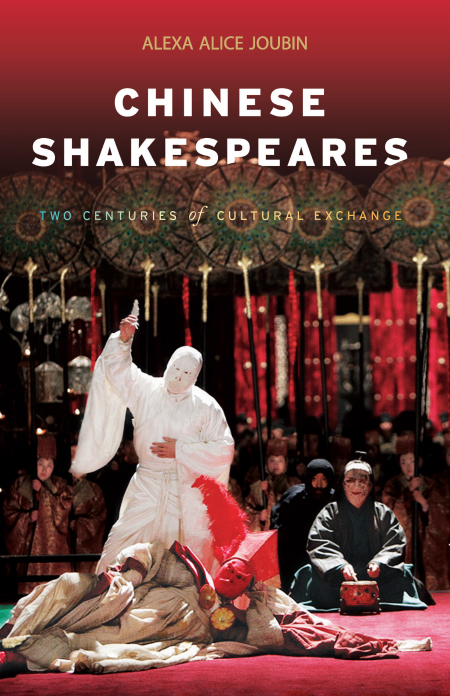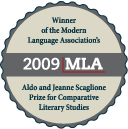For close to two hundred years, the ideas of Shakespeare have inspired incredible work in the literature, fiction, theater, and cinema of China, Taiwan, and Hong Kong. From the novels of Lao She and Lin Shu to Lu Xun’s search for a Chinese “Shakespeare,” and from Feng Xiaogang’s martial arts films to labor camp memoirs, Soviet-Chinese theater, Chinese opera in Europe, and silent film, Shakespeare has been put to work in unexpected places, yielding a rich trove of transnational imagery and paradoxical citations in popular and political culture.
This book received the Modern Language Association’s Aldo and Jeanne Scaglione Prize for Comparative Literary Studies. The award committee’s citation reads:
This book maps new territory for the most promising project in comparative literature today. Remarkable not only for its sophistication but also for its scholarly depth, Chinese Shakespeares is a landmark in the renewal of comparative literature as a discipline.
The book also received the International Convention of Asian Scholars (ICAS) Colleagues’ Choice Book Award. The award citation reads:
This book is a study of both Chinese cultural engagement with the West and of cross cultural communication in theatre and film. Shakespeare continues to be interpreted and reinterpreted in China for both local and global audiences, and Joubin’s study of its various manifestations and meanings will be the standard text in the field for years to come. We are pleased to award the International Convention of Asian Scholars Book Prize Colleagues’ Choice Award for her study which draws on a wide range of sources, and is a significant contribution to literary studies, cultural history, and studies of globalisation.
Penn State University’s Research magazine states that:
Joubin’s absorbing and detailed book challenges the traditional view that the world’s pre-eminent dramatist and England’s national poet belongs primarily to the English-speaking world.
In an interview with PSU Research, Joubin mentions an unusual Cultural Revolution era production of Much Ado About Nothing that claimed to be apolitical. “Usually artists want their work to feel relevant to audiences, but this was the opposite,” she clarifies. “They denied the existence of any ideological meaning or relevance and thought they were on safer ground by sticking to bright and sunny comedies and a fetishized idea of historical authenticity.”




